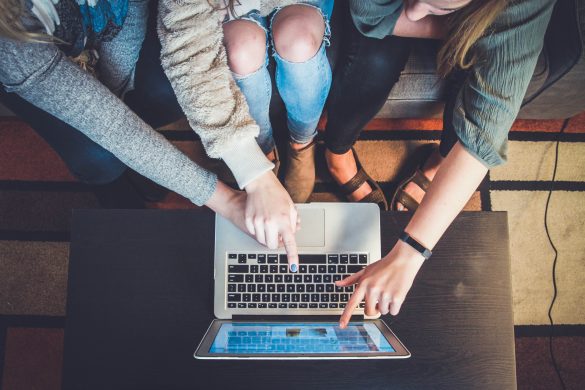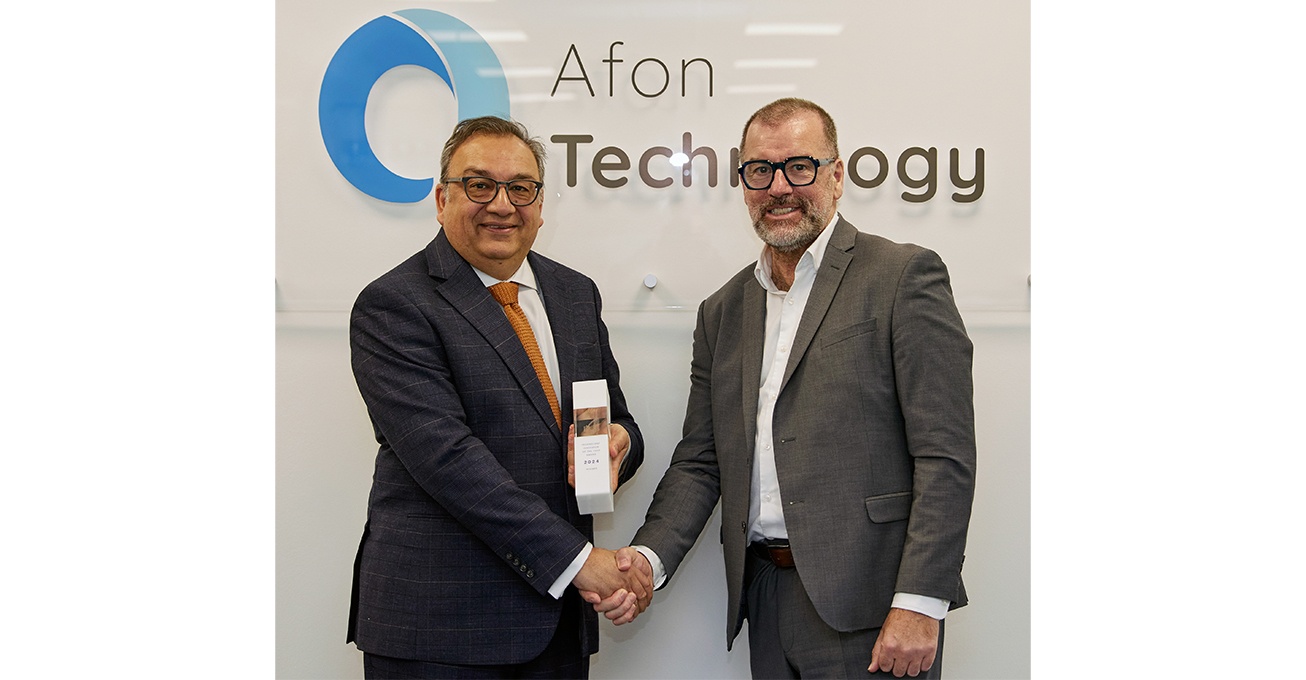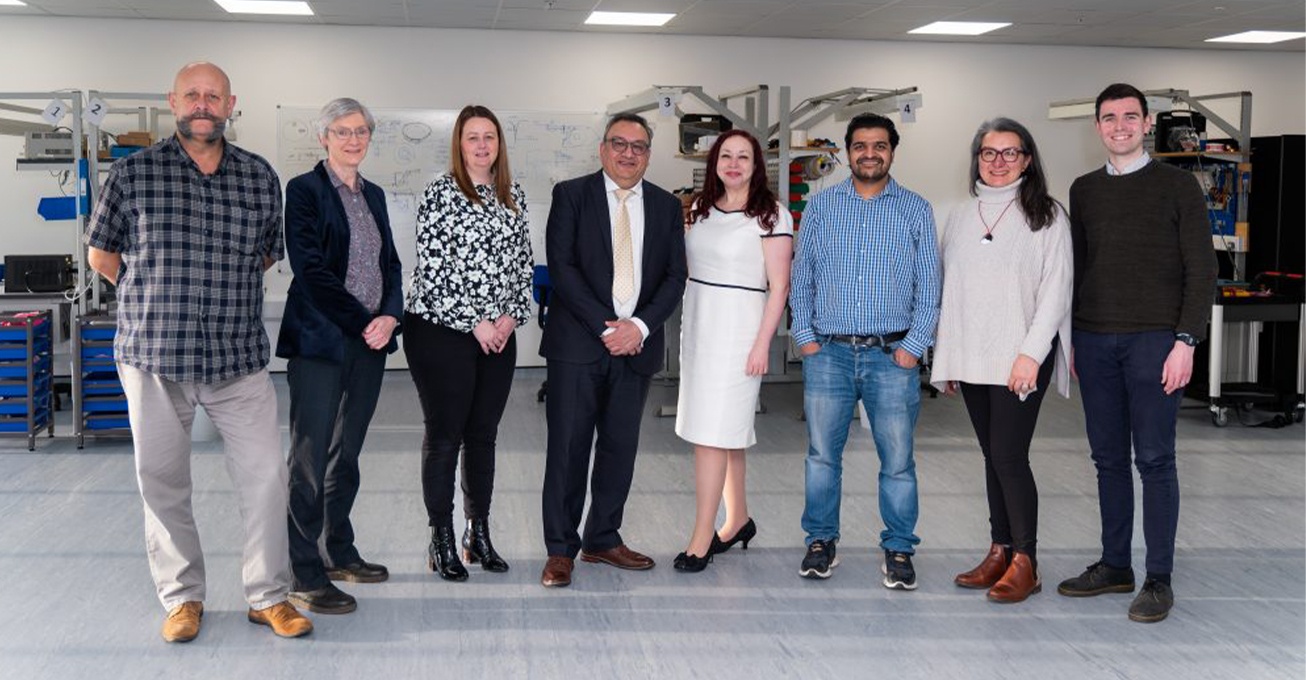 How is working at home impacting employee wellbeing?
How is working at home impacting employee wellbeing?
Niki Fuchs – Managing Director at Office Space in Town, London’s prime provider of flexible workspace: The national lockdown and remote work restrictions this year have had a profoundly negative impact on the mental and physical wellbeing of the UK workforce. In fact, Office Space in Town conducted a survey on working from home recently and found that 64% of companies do not offer practical guidance to ensure their employee’s home office is compliant with typical office health and safety rules. Indeed, the British Council for Offices has seen a significant increase in musculoskeletal complaints with 60% reporting neck pain, and 55% and 56% reporting back and shoulder pain respectively. In regard to mental wellbeing, 29% of those working from home reported that loneliness was the biggest downside to remote work and 25% reported feelings of anxiety.
Nick Mayhew – CEO at Alembic strategic workplace consultants: Lockdown and remote work have created the biggest behavioural science experiment we have ever seen. The pressures from remote work present a huge mental health challenge that must be addressed. Humans are inherently social creatures. A national lockdown and inability to meet face-to-face with colleagues has allowed for a negative feedback loop that has created habits detrimental to our mental wellbeing. Indeed, it only takes 8 weeks to form a habit, so months of lockdown has given ample time for negative behavioural patterns to be reinforced.
With the UK Government encouraging people to work remotely where they are able to do so, what can employers do to support workplace wellbeing at home?
Richard Morris – Director at technologywithin, the UK’s leading tech provider for flexible office space: Offering user-friendly channels for communication and human connection is paramount. 75% of people have used at least two new technologies while working from home during lockdown, so it’s plain to see that working norms are changing and businesses are adopting a more agile, tech-enabled approach. But, at the same time, the fact remains that what people miss most is the networking, collaboration and social opportunities that come with the office. Investing in effective video conferencing software for your teams can have a massive bearing on their experience of working remotely and can help people to reconnect not just for the big meetings and brainstorming sessions that have migrated online in the pandemic, but also to recreate those small chats and kitchen catchups that are so sorely missed by employees.
Niki Fuchs – Managing Director at Office Space in Town, London’s prime provider of flexible workspace: With the recent UK Government U-turn back to remote work, it is now important for employers to devise strategies to support those working from home to prevent the escalation of these wellbeing issues. Great steps employers can take are implementing mental health first aid training to their senior staff helping them notice warning signs in employees earlier to get them the support they need. Another great way to dispel the remote work blues is holding regular online meetings with staff members with no goal other than to catch-up and chat about non-work-related topics. This is a fantastic way to keep staff morale high and decrease loneliness amongst employees.
How can businesses balance the wellbeing needs of their teams with new safety requirements in the wake of the pandemic? Does the office have a part to play in this?
Emma Long – Managing Director (North) at BizSpace, the UK’s leading regional flexible office space provider: The office is absolutely central to striking the right balance between safety and wellbeing. With reports of stress, loneliness and anxiety rising among remote workers, facilitating a safe return to the office in line with government guidance will be absolutely paramount. It’s understandable that workers will want to hold onto some of the flexibility they have learned to appreciate during lockdown, that’s why many corporates are turning to flexible satellite locations as new workspaces for staff closer to their homes. These COVID-19 compliant spaces not only facilitate social distancing and eliminate the need to return to crowded HQs but also provide the social and collaborative environment that many workers are sorely missing.
Richard Morris – Director at technologywithin, the UK’s leading tech provider for flexible office space: Supporting wellbeing in the long-term will be increasingly dependent on delivering a more flexible approach that powers productivity and improves work-life balance. Put simply, the office will need to become a digital nucleus, providing access to fast and responsive cloud-based systems, remote telephony services and virtual conferencing facilities. But the benefits of this will not just be felt in the office. Up to 72 minutes of the working day can be lost as a result of poor connectivity and out-dated technology. Without investment in robust connectivity, effective tech and efficient servers, this loss of time risks being exacerbated even further at home, ultimately causing working hours to expand, or creating new sources or anxiety and frustration for employees.
What is your advice for businesses concerned about how businesses to best support their workforce?
Nick Mayhew – CEO at Alembic strategic workplace consultants: There are many ways in which employers can help manage employee wellbeing during this time. In fact, businesses can go a long way in reversing the negative feedback loops currently associated with remote work. Before social distancing, people would often take social connection for granted. Now elements of that are missed at a deep emotional and physical level and leaders should find ways to facilitate the connections. One of the major changes that can be made is encouraging staff to meet and discuss work outside. The office does not need to be the only place where work can be discussed in a group setting. In many ways, the outdoors offers an easier solution than returning to the office by allowing for adequate social distancing. Moreover, outdoor meetings offer a welcome change in scenery and fresh air which are known contributors to increased productivity. By recognising the most important ways of being together, and finding creative opportunities to make that happen, we can keep connection.
In terms of products, services or technology, what do you predict are going to be the main drivers in supporting businesses and employees through the pandemic?
Emma Long – Managing Director (North) at BizSpace, the UK’s leading regional flexible office space provider: Flexibility is going to be critical for businesses as they return to office working. For businesses, restrictive traditional long leases have become burdensome during the pandemic, leading last week to the news that the volume of ‘grey space’ or surplus space in London has risen by 67%. As they navigate the uncertain economic environment ahead, businesses will need the agility to expand or contract quickly – something traditional office space simply cannot provide. For employees, a focus on flexibility has further benefits. Most workers have a desire to return to the office in some capacity and by having access to flexible workspace closer to home, as many businesses adopt a “hub and spoke” style office footprint, they can benefit from the office while maintaining agile working practices.
With many businesses now considering a shift to more hybrid or flexible working in the long term, what will the implications of this be for employee wellbeing?
Emma Long – Managing Director (North) at BizSpace, the UK’s leading regional flexible office space provider: A large number of corporates are understandably turning to a hybrid or “hub and spoke” model for their office space, decentralising once crowded and expensive city-centre HQs in favour of a more dispersed approach. Not only does this approach have positive safety implications for staff now more easily and more confidently able to socially distance, it provides the flexibility to access the office environment when they need to. For those workers suffering due to isolation and stress while remote working, this strategy offers the best of both worlds.
Richard Morris – Director at technologywithin, the UK’s leading tech provider for flexible office space: With 61% of desk-based workers wanting to work from home more regularly following the pandemic, businesses and landlords must invest in the technology infrastructure to make this sustainable for the long term. Video conferencing technology is an obvious first port call, helping colleagues and teams to stay connected regardless of location. But further investment in smart building technology will also be crucial. Heat and motion sensors, more sophisticated or adaptive lighting systems, ventilation and workplace management software will help to create a more responsive working environment that truly prioritises workers’ mental and physical health. For landlords, investing in these solutions will be critical to not only preserving asset value, but also enhancing ROI in the long term.
Niki Fuchs- Managing Director at Office Space in Town, London’s prime provider of flexible workspace: I believe that the move to more flexible working is the future for businesses. Flexible working allows businesses to have the designated epicentre for their day-to-day proceedings, to meet clients, and to allow workers to collaborate and benefit from in person communication and development. This comes without the rigidity of traditional long-term office leases that businesses of all sizes will likely find increasingly cumbersome in this uncertain economic climate. Moreover, flexible workspaces often provide the quality of environment and variety of facilities that are usually only accessible within HQ-style buildings.
Nick Mayhew – CEO at Alembic strategic workplace consultants: I believe employee wellbeing will improve dramatically as more businesses switch to flexible working long-term. This will largely be due to the freedom flexible working offers to employees. The majority of the negative habit formation we have seen during lockdown and the rise of remote work has been the lack of movement ability in those working at home. Rewiring our neural processes requires positive physical movement. This cannot happen when trapped at home or in an office day-in, day-out. Giving employees the choice to change their work surroundings flexibly will be crucial in reducing loneliness and bolstering mental wellbeing post-pandemic.
The coronavirus pandemic has significantly impacted worker wellbeing this year with lockdown restrictions forcing nearly 25% of the UK workforce to work solely from home. This has seen a tremendous rise in worker ‘burnout’ as more of us struggle to separate our work and home lives. The longer hours people tend to spend at their desks, alongside the loss of community and human contact synonymous with office life can have negative impacts on both physical and mental health.
Speaking in more detail on this issue, and how businesses and workers can help ease current pressures moving forward long-term are four industry leaders across the CRE sector: Emma Long, Managing Director of the North at BizSpace, the UK’s leading provider of flexible workspace, Richard Morris, Director at technologywithin the UK’s leading tech provider for flexible office space, Niki Fuchs, Managing Director at Office Space in Town, London’s prime provider of flexible workspace, and Nick Mayhew, CEO at Alembic strategic workplace consultants.






